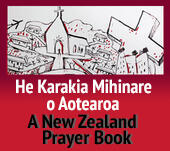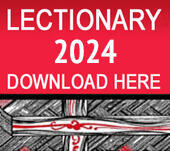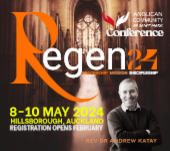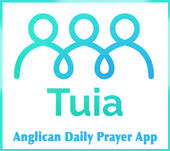Archbishop Brown Turei's kauwhau to General Conference in Napier: 6 May, 2016.
He Mihi e koutou e āku nui, e āku rahi, e ōku rau rangatira mā
Greetings to you all in the name of Jesus Christ.
As we gather for this hui, the first and inaugural General Conference between Tikanga Pākehā and Tikanga Māori, I pray that we would be led by the presence of the Holy Spirit.
We have but a simple goal for this day: To talk together openly, plainly, and honestly about the state of our relationship and mission together.
Many of us are used to conferences where we sit side-by-side, listening to someone else telling us what we ought to think.
Today we will sit face-to-face, sharing what we honestly think and feel.
There is no hidden agenda, no predetermined outcome, other than the hope that in offering ourselves to plain and open dialogue, the Holy Spirit will offer ways in which our future missions and ministries can be woven together for the Glory of God.
Te Manaakitanga a Te Atua — God’s Radical Hospitality
Today’s conference is the product of a long and ongoing conversation about the true state of our relationship as Tikanga Māori and Tikanga Pākehā.
If we are honest, we’ll acknowledge that our relationship includes a fraught history. We are all well versed in the highs and lows of our colonial past, and in the tensions of our colonial present.
We should remember that our relationship also includes a history of blessing. In those times when we have walked together in faith, and shared together with honest and open hearts, we have glimpsed the true potential that we have together in Christ Jesus.
We should seek to repeat these moments more often. In recent years our conversations have been defined by a focus on resource sharing. While important, I believe that if we continue to frame our relationship that way then we will miss out on the greater picture.
We have a lot more to share than facilities and funding. We have the opportunity to put aside differences, correct injustices, heal old wounds, and begin again to love each other in the way that Christ loves us.
A way to do this is to remind ourselves of God’s role in our relationship. It is God that brings us together. We are invited to share together in God’s kingdom no matter who we are, and no matter where we come from.
I hope that we never lose our sense of wonder towards the gift that God has given us. As it is written:
For by grace you have been saved through faith, and this is not your own doing; it is the gift of God — not the result of works, so that no one may boast.
For we are what God has made us, created in Christ Jesus for good works, which God prepared beforehand to be our way of life. (Ephesians 2:8-10)
Perhaps we could start our conversation here: By grace we have been saved through faith, not by our own doing, but by the free gift of God.
This gift is outrageous. It is undeserved. None of us are entitled. None of us are worthy. When God invites us together, God is offering hospitality– manaakitanga – of the most incredible order. We are all welcome here. We have all been given the same grace and the same salvation.
Undeserved. Unentitled. Unworthy. And yet, here we are.
Every one of us saved and loved by God. Every one of us given a seat at the table.
We do best when we practice manaakitanga in the same way that God does. God’s hospitality knows no limits, and plays no favourites. God’s hospitality is fearless and tireless. Some even say that God’s hospitality is radical!
I like that word, radical. It means to take an abrupt and dramatic departure from the norm. Many of you have been preaching about radical hospitality for years. I think it offers a good perspective of our journey together in Aotearoa. When Ruatara paved the way for the Gospel, he was practising Gods manaakitanga. Ruatara built the platform, the seating, the reading desk, and the pulpit that Marsden used to deliver the Gospel on Christmas Day in 1814. Ruatara gave land for the first mission house and school.
While some of his peers chose to respond with the patu and the musket, Ruatara chose to respond with the Gospel of Jesus Christ. That’s incredible manaakitanga. That’s radical hospitality.
In signing the Treaty of Waitangi, our peoples made an extraordinary choice together. All of us – the native and the stranger – could have a place at this table. That was the Gospel intent of the day. That’s incredible manaakitanga. That’s radical hospitality. We see this all across our history if we look.
Here in Ngāti Kahungunu we remember Te Wera Hauraki, who became a gateway for the Gospel in Te Mahia and beyond by gifting land and committing his people to becoming bearers of the faith.
Here in Te Matau a Māui we remember great chiefs like Henare Tōmoana, Renata Kawepō and others who gifted land and raised funds for the growth of the church. We remember the chiefs and people of Te Whatu-i-Āpiti who gifted thousands of acres of land to build the Anglican College of Te Aute, and to further the mission of the church.
We remember the work of the Williams family in helping to found both Te Aute College and Hukarere Māori Girls College, dedicating their lives to advancing the gospel and supporting the Māori people.
We remember that under Bishop William Williams, the first four synods of the Diocese of Waiapu were held entirely in the Māori language. Much like the Day of Pentecost, the gospel was spoken there in the language of the territories that surrounded them. Every one was included. Every one had a seat at the table. That’s incredible manaakitanga. That’s radical hospitality.
There have been times in our past when manaakitanga and hospitality has been abused. We have not always lived up to the example set by our forebears, let alone the example of Christ. That’s what makes God’s manaakitanga so compelling. Even though we are unworthy, God keeps extending the invitation. God keeps giving. God keeps a place for us at the table.
We need to keep encouraging each other to give like God gives. I have been greatly encouraged throughout my ministry by people who practice incredible manaakitanga and radical hospitality.
When my faith and heart have been low, it is the manaakitanga of others who have helped me through. I want to acknowledge Archbishop Philip as part of this conversation. He is a great example to me of how the relationship between Tikanga Pākehā and Tikanga Māori can be.
I have grown to trust and respect this man for many reasons, including the unseen and unheralded manaakitanga that he offers. Because of this, our working relationship has become surpassed by friendship in Christ. We break bread together not because we have to, but because we want to. And for no other reason than to share in the gift that God has given.
I’ve lost count of the amount of times that Archbishop Philip has dropped tools to travel to where I am and offer tautoko and support. He could have just called. He could have sent an email.
Instead, he chose to be in-person and face-to-face, no matter the cost to him in time and effort. That’s incredible manaakitanga. That’s radical hospitality. I’m conscious that what is found at the top of our structure isn’t always expressed at the grass-roots.
We can claim to be bi-cultural and three tikanga at synods, but are we that way in our daily lives? We might have shows of incredible manaakitanga at synods and conferences, but do we engage in that together when go back home?
I know that all of you have practised manaakitanga and hospitality at some time, and in some form. I wonder though, when you look around the room, just how many times you have extended this manaakitanga and hospitality to those you can see in front of you.
Have you been the same to all who are gathered here? Have you been selective in your incredible manaakitanga? Have you excluded others from your radical hospitality? Let’s put radical hospitality aside for a second, and talk just about basic hospitality:
How often are we invited to each other’s homes? How often do we break bread together? How often do we meet with no other agenda than to enjoy each other’s company, to share the hopes of our hearts, and strengthen the bonds of our fellowship? How often do we help each other?
Lend a car. Give a person a lift. Assist in chores and duties. Shout each other to meals, or to the movies. Do we share in each other’s journeys? Do we give to each other the way that God gives? Can we even call ourselves friends? It might be true in some cases that we don’t like each other. We don’t share because we don’t care. But if we don’t even practice the most basic forms of hospitality, what chance do we have of reflecting God’s radical hospitality, let alone truly receiving it?
The answer is found in Christ’s teaching. We are to give in the way that God gives. We are to love each other the way that Christ loves us. We need to extend the invitation to each other, no matter how unworthy, undeserving, or unlikeable the other may be.
Today, we can put aside whatever barriers have existed in the past, and begin talking to each other about the true state of our relationships on the ground, where we live and minister every day.
We can talk about how we can truly share in and support each other’s mission and ministries. Let’s offer the same grace to each other that God first gave us. Grace that brings salvation through faith, not accorded to our own efforts, but as the free gift of God.
Let’s find a way to offer incredible manaakitanga, and radical hospitality. After all, it’s only incredible and radical in the world’s eyes, but in the Kingdom of God it is the norm. It’s the least that we can do.
Kati rā e hika mā, kia tau te manaakitanga a te Atua ki a koutou.
Tēnā koutou, kia ora mai tātou katoa.

















Comments
Log in or create a user account to comment.